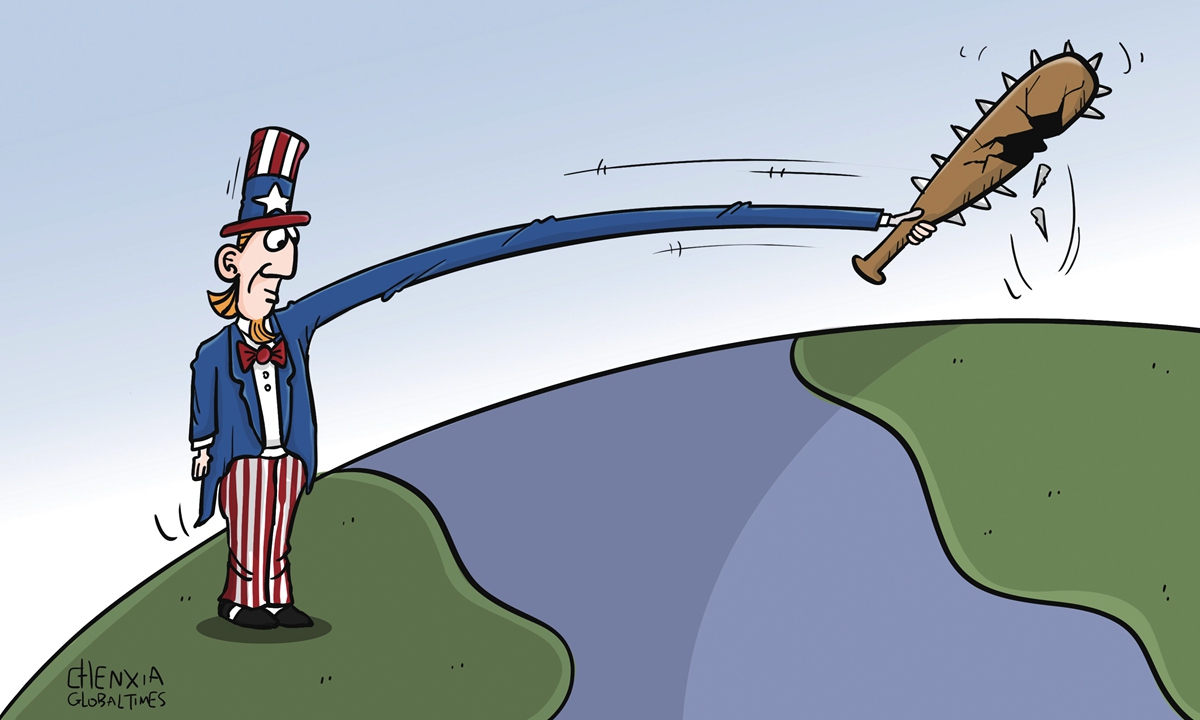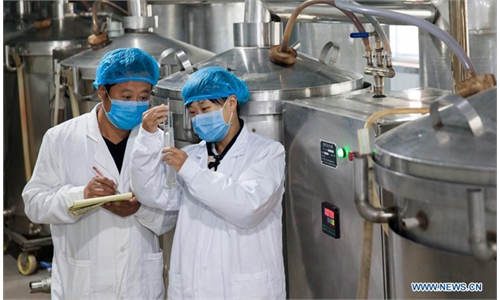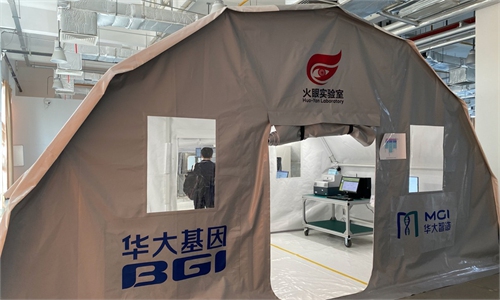
US long-arm jurisdiction Illustration: Chen Xia/Global Times
Some US lawmakers have reportedly called for seven Chinese biotech firms to be registered on a list created by the US Defense Department in a bid to "highlight firms it says are allegedly working with Beijing's military," a move the Chinese Embassy in Washington immediately criticized as using "false pretexts" to suppress Chinese companies.
Chinese analysts on Tuesday said they found such calls against Chinese firms hardly surprising, as it is evidently part of the US' strategy of building a "small yard, high fence" in cutting-edge technologies which aim to tackle Chinese technological advantages.
Reuters reported on Monday that a Republican and a Democratic member of the US Congress are calling on the Biden administration to add seven Chinese biotech firms to a list created by the Defense Department to highlight firms it says are allegedly working with Beijing's military.
In a letter dated March 29 seen by Reuters, Republican Michael Gallagher and Democrat Raja Krishnamoorthi asked Defense Secretary Lloyd Austin to take the action, claiming that Beijing could harness the power of biotechnology to strengthen its military.
The report explained that although being placed on the Pentagon's Chinese military-backed companies list does not involve immediate bans, it can still be a blow to companies' reputations and represents a warning to US firms considering doing business with them. It could also put pressure on the US Treasury Department to sanction them.
The potential restriction is not a surprise, as it is part of the US' strategy tackling Chinese technological advantages, Lü Xiang, a research fellow on US studies at the Chinese Academy of Social Sciences, told the Global Times on Tuesday.
"On the one hand, the US has to protect its backward production capacity in auto manufacturing, solar panels and other industries related to green development. On the other hand, the US is building a 'small yard, high fence' in cutting-edge technologies such as semiconductors and artificial intelligence to contain China's development, and biomedicine is part of these technologies," Lü said.
A spokesperson for the Chinese Embassy in Washington said "some people" in the US should stop suppressing Chinese companies under false pretexts.
"When it comes to 'using biotech to strengthen its military,' the US side should reflect on itself, rather than groundlessly attacking and smearing China," spokesperson Liu Pengyu said in a statement.
Lü commented that China has the world's leading production capacity of raw materials for medicine and generic drugs, and the potential restriction may bar the application of some cutting-edge medicines in China. He added that it may backfire on US biomedicine enterprises as their new technologies may miss business opportunities in a larger market without cooperation with Chinese enterprises.
The consequences of the restriction can be modeled on the US' export ban on semiconductor products to China, he noted. "However, senior executives from multiple US chip makers are still flocking to China to seek flexible cooperation approaches with Chinese enterprises, Lü said.
"The US will become a country that has a 'small pie' under a slew of restrictions, which is the complete opposite of China's commitment to making the pie bigger," said the expert.
It is not the first time that the US has targeted Chinese biotech firms. The US Senate's homeland security committee on March approved a bill to prohibit contracts with Chinese biotech providers including BGI Group, MGI and Complete Genomics.
As the mentioned companies have refuted the allegations listed in the bill, Chinese observers said the bill is another stereotypical case in which US politicians purposely make "imagined enemy" of China to step up suppression of Chinese companies for their own political gains.



